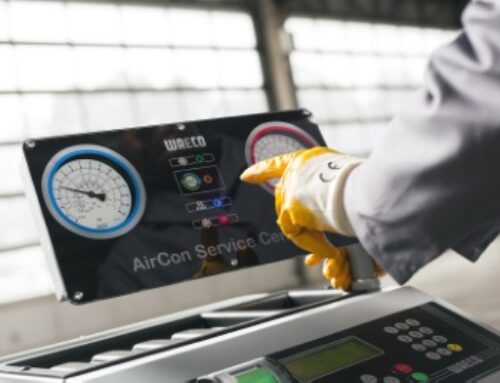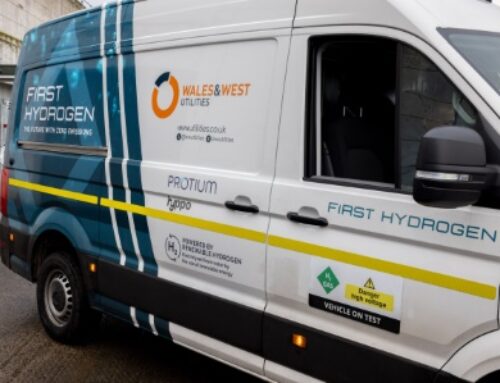Navigating the transition
 Niki Holt, head of commercial at Certas Energy, discusses how fleets can evolve their liquid fuel mix during times of regulatory change
Niki Holt, head of commercial at Certas Energy, discusses how fleets can evolve their liquid fuel mix during times of regulatory change
The UK is leading the way towards the goal of Net Zero Carbon 2050, as the first country to pass this target into law. As a growing body of legislation continues to incentivise the use of alternative energies and liquid fuels, the traditionally diesel-dependent transport sector is now firmly in the spotlight and under pressure to make changes to its energy mixes.
For fuel and fleet managers, that means it is time to get ready for a transition to cleaner-burning alternatives. However, many may be wondering: how can they identify the right liquid fuels for their needs, while managing the financial impact of the transition?
Keep up to date with changing fuel regulations
Liquid fuel legislation on the road to net zero is a shifting landscape. It is important to stay aware of what is changing, and to understand what the change means for your business. Sign up to the Department of Transport’s latest updates email feed and search for the headlines on Twitter to get insights on the news from your peers.
Recent announcements include the government’s Transport Decarbonisation Plan, which ends the sale of new diesel HGVs by 2040 and light HGVs by 2035. There are also changes coming in 2022 to rules around the use of red diesel. Though this largely affects refrigerated fleets only, it is a good example of the type of legislative change that can be easily overlooked.
 The rise in environmentally conscious decision-making has also led to the development of policies such as the UK’s Renewable Transport Fuel Obligation. The RTFO requires all fuel suppliers to increase the volume of renewable content present in the total fuel mix from 8.5 per cent currently to 12.4 per cent by 2032.
The rise in environmentally conscious decision-making has also led to the development of policies such as the UK’s Renewable Transport Fuel Obligation. The RTFO requires all fuel suppliers to increase the volume of renewable content present in the total fuel mix from 8.5 per cent currently to 12.4 per cent by 2032.
FAME, or Fatty Acid Methyl Esters, is a renewable biodiesel manufactured from sustainable sources that can help to reduce carbon dioxide emissions. Its environmental benefits are clear, but FAME is also highly hygroscopic, and its ability to hold water can lead to fuel contamination issues such as build-up of wax crystals, particularly in older tanks and machinery.
That makes it essential for fleet managers to understand how to maintain equipment running on FAME-heavy fuel, while also investigating the FAME-free alternative fuels on the market.
Red diesel rule changes for refrigerated fleets
In Budget 2020 it was announced that certain industries would lose their current tax rebate on red diesel and will no longer be permitted to use it across a variety of applications. For the haulage industry, these changes have two particularly notable implications: from 1 April 2022, red diesel can no longer be used to power commercial refrigeration units or forklift trucks used for logistical purposes, such as loading and unloading trailers.
Users of red diesel will therefore need to run down their stores in advance of the deadline. It is also important to save invoices from red diesel purchases – these act as proof that it has not been purchased too close to the deadline, which could be seen as an attempt to stock up. The government has indicated that spot checks will be enforced, along with heavy fines for non-compliance and/or confiscation of equipment.
Manage fuel beyond compliance
Compliance is essential to success in transport, however it is equally important to consider efficiency and security. For fleet managers who want to stay ahead of the competition, it is smart to consider the wider ways in which the energy mix transition could influence your ways of working day-to-day.
This means that now is the right time to get even more serious about fuel efficiency: complete visibility of where, when and how much the workforce refuels can make all the difference for fleet managers who are trying to save costs and prevent fraudulent usage.
Tracking fleet spend and limiting access with a fuel card system makes the process straightforward. Fuel cards supply a steady stream of data that helps businesses to monitor fuel consumption trends, while also providing a clear audit trail that protects them from fraud.
 Start considering new energy solutions
Start considering new energy solutions
Future regulatory changes will certainly affect the role fossil fuels have to play within the energy mix and now is the time for haulage companies to get ready, and to start planning an energy transition that can fuel their future growth and success.
The good news is that there are already FAME-free alternatives on the market. Fleet managers can explore cleaner burning fuels such as Shell Gas-to-Liquid (GTL), a winter grade fuel which avoids the issues created by FAME while also preventing cold starts during colder months.
GTL sits alongside a growing line-up of viable alternative drop-in fuels, such as hydrotreated vegetable oil (HVO). FAME, sulphur and fossil free, HVO is made using waste streams of vegetable fats and oils and is steadily gaining traction throughout the UK. However, it is important for fleet managers to ensure that the HVO they select, comes from a transparently sustainable, high-quality source, in order to provide tangible environmental benefits.
Fuelling futures, together
It is clear that transport companies are best placed to reach Net Zero Carbon by 2050 if they plan their energy transition in advance, steadily increasing their use of alternative fuels and setting regular goals that encourage continuous improvement. Effective fuel management enables this sustainable approach to change, and it ensures that compliance need not cause undue concern.
This is where Certas Energy can help. We offer the UK’s largest fuel distribution network, which means we are right there to listen to and understand the needs of fleet managers, drivers and business owners. We provide liquid fuel solutions and related products and services that emphasise efficiency and convenience as well as compliance, and we offer industry-leading expertise to help fleets navigate their journey to 2050.











